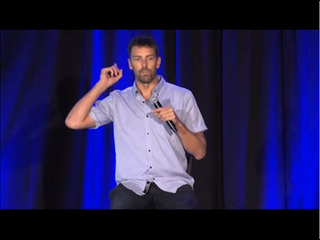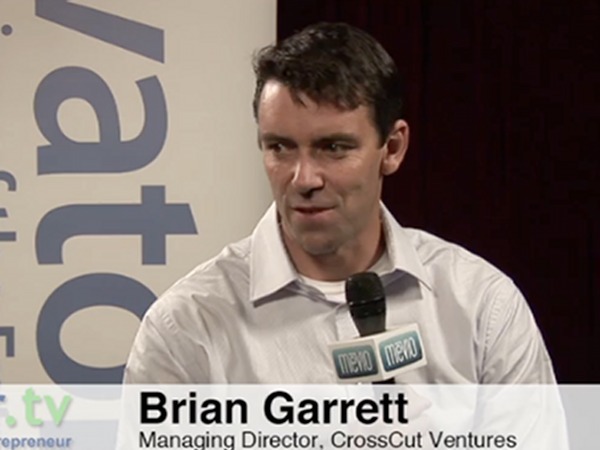
[Editor’s note: Future of Behavioral and Mental Health with BetterHelp, Headspace, Ginger.io, Providence Hospitals, UnitedHealthcare Optum, Khosla Ventures, Oak HC/FT and more has become 4 virtual conferences! Register one time for all 4 events! REGISTER. We also have our The Future of Virtual Care event on July 1. You can register for that HERE.]
There’s been a lot of talk about the mental health crisis happening now due to the coronavirus pandemic, leading to a rise in people accessing those services through telemedicine platforms, often for the first time.
While talking to a therapist one-on-one is a great resource for a lot of people it’s also not the only way to seek help: there are also peer-to-peer support groups that people have been forming, as well as group therapy sessions, which can help us feel like we’re not alone in our struggles. These kinds of community and group therapy sessions are not only sometimes better for the patient, but for the therapists as well.
This topic came up during Wednesday’s latest salon centered around mental and behavioral health, in a panel featuring Alon Matas (Founder and president of Betterhelp), Brian Garrett (Co-founder & Managing Director, Crosscut Ventures), Nina Vasan (Chair of the Committee on Innovation at the American Psychiatric Association and Executive Director of Brainstorm: The Stanford Lab for Mental Health Innovation ) and David Bond (Director of Behavioral Health, Blue Shield of California – Promise Health Plan).
The co-moderators were Bambi Francisco Roizen (Founder and CEO, Vator), and Dr. Archana Dubey (Global Medical Director, HP).
Francisco brought up support systems that people have had in the past, and will have again in the future, and asked how those can be replicated on top of the virtual therapy sessions that are already being offered. She specifically asked Matas to talk about what BetterHelp is doing to enhance its services during the crisis.
“Our whole approach is to stay focused on the classic individual therapy provided one-on-one with a licensed therapist, the same way it’s been done in brick and mortar for years and years,” he said.
“What we’re disrupting is not the therapy itself but the delivery mechanism and making it more accessible, affordable and more convenient. We’re not trying to change the model, but we’re talking about the increase in demand for therapy, and that’s obviously leading some of the increased demand for online therapy in general.”
There are two things happening that are causing that increase, he said, the first being the inability to talk to therapists face-to-face thanks to COVID, and the second one is what he called “a pivotal shift in consumer perception and consumer receptiveness to have deep communication online.”
His wife, for example, who he said likely had never heard of Zoom before a few weeks ago, is now on it every night. People who had been on the fence, or even pushing back on doing therapy online, are now seeing the benefit, and that won’t go away even when coronavirus is a thing of the past, because the perception of telehealth has changed so much.
“The fundamental change of how digital health is perceived and how doing telehealth and doing things online for things like counseling and therapy, that’s going to stay with us forever, basically. We’re a different industry now, we’re a different offering now, in consumer perception. That’s what brings a lot of the extra demand, beyond just needing more therapy.”
Vasan mentioned a startup she is working with called Real, which provides mental health specifically for women, including digital offerings for one-on-one and group therapy. Group therapy, she said, is especially important when it comes to how we allocate resources, especially the therapist’s time.
“When we think about resources, collectively as a country and in terms of the resources we have, and the sheer number of therapists hours we have, that, at the end of the day, is the big bottleneck,” Vasan said, calling it “a flaw in us being able to really, really maximize our utility.”
Studies have shown that therapy gets the same results for people as one-on-one therapy, while also allowing therapists to maximize their time, she said.
“You lose some elements of the one-on-one attention, but then you gain the group perspective and multiple people to have as a support system and everything in the group. For a long time, we’ve known that group therapy is incredibly effective and makes a lot of sense from a systems perspective,” she said.
In fact, Vasan believes that group therapy will now be more successful in a digital setting because it lessens the time constraints on the patients as well.
“Why has it not been successful in the past? Because we’ve tried to have it in an in-person setting,” she said. “Who’s been able to make a 7 pm for 12 weeks in a row for anything? That’s pretty near impossible. Moreover, getting the same five or 10 or 12 people to make it at that same time, that just doesn’t happen.”
She also admitted that “we’re in a little bit of a honeymoon phase because we’re all home now,” but still said she believes that allowing people to join from anywhere will mean people are more likely to attend. Right now, group therapy sessions and salons has been literally near 100 percent, versus no-show rates at her regular Stanford clinic of between 15 and 20 percent.
“If we think about how we are going to address this moving forward, and in particular understanding the new influx of folks who are now struggling with mental health and want to be able to get that help, the group option makes a lot of sense. Not only groups where you actually have a trained therapist, psychiatrist or clinician, but also some of these peer support groups,” she said, citing AA as an example of making that work.
“To be able to specialize with the people you most identify with, that’s going to be something we’ll see a lot more moving forward.”
Francisco responded my mentioning a survey that was conducted prior to the event, in which participants were asked their preferred method of seeking help; most people answered that they wanted one-on-one therapy, and fewer people said they preferred community groups.
Still, she said, “I absolutely believe in community and group therapy because, as you brought up, AA works really well.”
She then asked Bond what kind of partnerships Blue Shield is doing now to have community-type groups help service some of the company’s population, to which he mentioned a partnership with BlueSky, which provides, mental health services for high school aged students, and with DoSomething, which reached out digitally to people and helped to build communities.
These kinds of groups can be especially important for minority kids, he mentioned, whose experiences may be more culturally specific, and who need to talk to people who come from similar backgrounds.
“Before coming to Blue Shield I was the clinical lead for a national suicide prevention organization for LBGTQ young people. We were talking about organizations that are community specific to help people with resilience, you think about some kids who live in rejecting homes, how very complicated it is to not be able to have any kind of retreat from your parents or your families or whatnot,” Bond said.
“Not that all homes are rejecting, many are quite accepting and resilience building, but in those homes where you’ve got those complications, it’s these partnerships who act as cultural brokers, whether it’s for an LGBTQ community or a Muslim community or different faith communities or different ethnic communities, where being around people who look like you or sound like you or have some similar lived experience as you, you don’t need people who look like me acting like we’re able to serve everybody with the same level or humility and appropriateness and understanding.”
Dubey brought it back to what Vasan mentioned about therapist resources by discussing a partnership that HP is doing with Crossover Health, helping to digitize a lot of their services, including behavioral health, physical therapy, health coaching and primary care.
“It’s not only virtual with synchronous visits, which is basically you set up an appointment and both the people show up, but also we rolled out asynchronous communication, and that’s one way to scale our providers is to create almost like texting kind of communication with your healthcare provider,” she said.
“In that way, you have a care continuum and not just one-to-one therapy sessions, and that’s quite effective ways for us to roll that out. The group visits are quite effective but what happens is people do not share all of what they need to, to get to a clinical diagnosis and treatment planning. So, I think they’re helpful because you do know that you’re not alone, but asynchronous visits are quite effective from a scaling perspective.”
Francisco turned the question over to Garrett, and asked what, if any, services he is offering Crosscut’s portfolio companies to help them emotionally, along with the financial and business advice already being offered.
“I’m not clinically trained in any way to support them in the way they should be, but a big part of our platform as a firm is about empowering the entrepreneur to have the best chances for success,” he said. “If 80 percent of our bet is a founder bet what I’ve come to realize, after doing this for 20 years, is it’s very much about the relationship with the entrepreneur, both investor to entrepreneur, but it’s mostly about facilitating the leadership skills, the growth skills, the EQ, all the things that contribute to a good and healthy leader.”
For that reason, Crosscut has been putting more energy behind the emotional health of its founders by partnering earlier this year with a coaching group called Evolution to give entrepreneurs access to traditionally trained psychiatrists when they need it.
“A big part of what our investing platform is focused on is finding entrepreneurs who are open to that, not so driven by ego and self confidence that they say, ‘Yeah, I need help.’ Just as we do as VCs; we don’t have all the answers, we need help in our own personal lives. If I can show that to the entrepreneur and make them more confident that they don’t have to thump their chest and pretend they’re killing it, we might actually wind up in a better dialogue as a mentor and advisor to the company,” said Garret.
Francisco mentioned that CEO groups are a common thing in Silicon Valley, and asked Garret if Evolution is helping to put together group sessions for them, to which he replied that they’ve actually been taking the initiative to do it themselves.
“I know Evolution has been doing a lot of group sessions before. I participate in group therapy, I think it’s extremely helpful. I think more what’s happening is the strongest leaders that have a background, the strongest founders are actually facilitating these groups themselves,” he said. We see these, and
“They’re mostly on WhatsApp or other platforms, they’re just sort of happening naturally, not leveraging any established platform for it, but really basically saying, ‘I’m here as a resource, what do you need?’ I just see a ton of great ideas being shared across these founder groups and, from what I can tell, deep engagement on leveraging them to their benefit at this time.”
Thanks to our sponsors: UCSF Health Hub, HP, Betterhelp, Avison Young, Advsr, Scrubbed, and Stratpoint.
(Image source: psychcentral.com)























